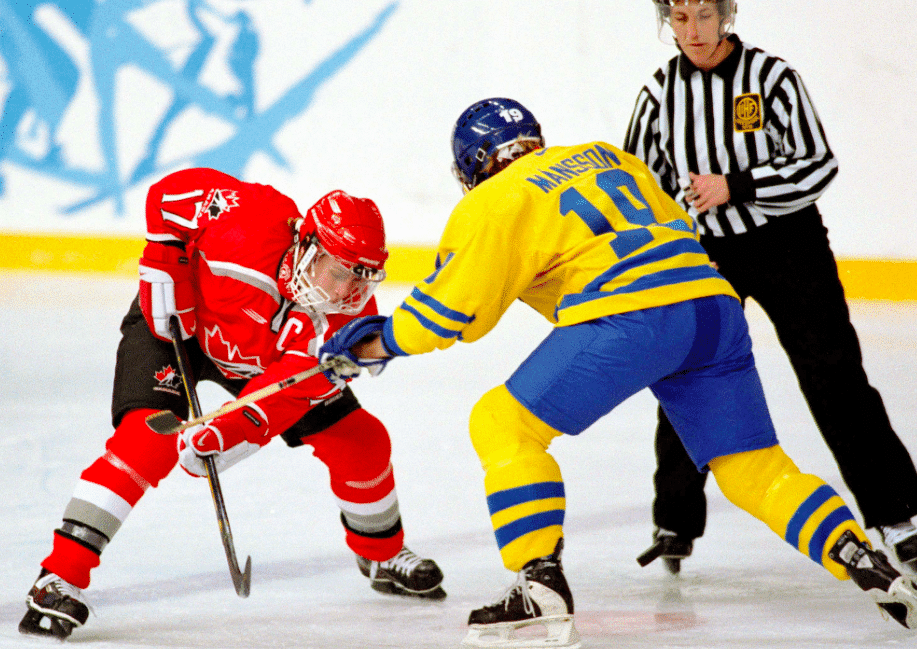With eyes set on 2027, Rugby Canada isn't pulling any punches in its new roadmap filled with bold aspirations and strategic goals. Under CEO Nathan Bombrys' guidance, clear pathways are being drawn up, demanding more than mere serendipity and emerging talent.
It's a thrilling juncture for the team as we eagerly anticipate the extent of their potential to rise. Meanwhile, observers are keen to see how Team Canada reshapes its narrative on the global stage.
Betting sites
The centerpiece of Bombrys' unveiling is an earnest pledge to hoist Canada into the top 12 rugby-playing nations. Presently ranked 21st, the journey suggests a plausible climb of nine positions, though the established giants above them cast a long shadow of historical success.
Canada's current rank of 21st sits just below Romania, edging out Namibia and Chile. All these nations secured a berth in the World Cup in France, with Chile suffering a 42-12 defeat to Japan, the team holding the 12th world spot.
In a memorable home fixture, Canada narrowly defeated Chile 22-21 during World Cup qualifications only to suffer a 33-24 loss in Valparaiso later. Chile's historical victory over Canada, timely yet ironic, marked a challenging period for the team.
Canada once soared to the 11th spot in global rankings back in September 2011, albeit fleetingly. This achievement underscores their potential, though recent trends have starkly deviated from this once-promising trajectory.
Substantial investment injections are crucial to realize these ambitious objectives. Currently, Rugby Canada operates on an annual budget of 16 million dollars, requiring corporate faith and partnership to fund new training facilities — a crucial pivot that time and unfolding partnerships will test.
A profound sense of disappointment enveloped Canadian fans as the team missed their slot for the upcoming 2023 Rugby World Cup in France. After battling through qualifiers, Canada split their results against the United States and, as previously noted, against Chile.
Chile faced intense trials in Pool D, suffering significant losses to England, Argentina, and Samoa, echoing their defeat by Japan. They struggled on the world stage, yet secured their inaugural World Cup appearance—a feat still out of reach for Canada.
Since the inaugural 1987 World Cup, Canada consistently qualified through nine editions until the unfortunate misstep this year in France, breaking their remarkable streak. Despite early successes, progression past the group stage proved elusive, accomplished only once in 1991.
From 1991 through their early forays, Canada claimed six wins, though their form starkly dipped, racking up only one victory across the last four World Cup appearances. The gap widened with winless slates in 2015 and 2019 compounded by a sparse scoring tally.
Gone are the days of relative respectability, supplanted now by frustrations fuelled by failing to qualify for 2023. This turning point prodded Rugby Canada to unveil new plans, aimed at rewriting this history.
Inaugurating a fresh biannual tournament in 2026 aims to invigorate competitiveness. Two parallel tournaments will unfold: the top 12 holding court aside, while the next 12 engage in a lively “Challenger” event.
For Canada, contesting in this second-tier contest offers a platform to measure itself against peers, fostering readiness for the 2030 introduction of promotion and relegation between event levels.
Despite early criticism alleging elitism and protectionism for prominent rugby nations, the model lays fertile ground for aspirant teams like Canada to strategize their leap into the premier group when the leagues blend.
Having roots in the Olympics, rugby sevens features prominently in Rugby Canada's vision, serving as a springboard for both men’s and women’s teams to master foundational skills before elevating to the full version of the sport.
As the sevens circuit embarks globally, the tour recently made stops in Dubai and Cape Town. The Canadian men's team struggled in Dubai but gave close matches to New Zealand and South Africa before fatigue set in against Samoa.
The Canadian women displayed notable prowess, rebounding from an uninspiring opener to top the USA and Spain, advancing to the Quarterfinals where they narrowly succumbed to New Zealand in an eventful kick-off to the sevens tour.
In Cape Town, the women succeeded against South Africa, though losses to the USA and France marred hopes. A subsequent heavy quarter-final loss to New Zealand was a setback after earlier contests.
The Canadian men's team, performing stronger than in Dubai, reached the quarter-finals but suffered a shutout defeat to Argentina after a group stage that featured victories against New Zealand and Samoa, with a loss to Australia.
For enthusiastic supporters, the sevens tour will soon grace Vancouver with matches enveloped by the adrenaline-heavy atmosphere of BC Place from February 23 to 25, 2024. It's a high-speed distillation of the sport offering extra room for exhilarating, high-scoring exchanges.
Currently, it's the women’s team garnering attention, occupying the fourth rank globally, with consistent World Cup semi-final berths five times across seven recent tournaments. They have confidently booked another World Cup journey set for 2025 in England.
Recently, the women finished as runners-up in the WXV I tournament in New Zealand, with losses only to the world top-ranked England. Notably, Sophie de Goede emerged as the tournament’s top scorer, hailing from a legacy of rugby luminaries in Canada.
Canada’s women are embedded in the UK rugby space, battling top-tier club sides. The Exeter Chiefs and Saracens notably enlist three Canadians each, presenting chances for fans to rally behind them.
The landscape diverges for the men, with a majority entrenched in North American clubs. Piers Von Dadelszen stands as an outlier at Oxford University, while Sion Parry plays in Wales for Pontypridd in the Welsh Premier Division.
Elevating Canadian players to club squads among rugby’s elite is indispensable to advancing internationally. Remaining stateside reveals limitations, where North American play lags significantly behind global standards.
Skepticism mingles with optimism over the ambitious bid. Enthusiasts contend with surprise at the audacity, with Bombrys acknowledging the slim chances of cracking the top 12 imminently. Yet, as a declaration of ambition, aiming high anchors the mission.
Setting an intrepid target is vital; mediocrity won’t inspire pursuits toward glory. In outlining goals, loftier than now, Rugby Canada hopes to trigger the right ripples toward impactful progress.
While perhaps not a tonic for immediate aspirations, instilling a vibrant rugby culture among youth is key to sustaining momentum beyond 2027 and perhaps realizing these ambitions into the 2030s.
Rugby Canada Shares Ambitious Plan to Secure a Spot Among the Global Elite
Determined to leave their recent Rugby World Cup letdown behind, Rugby Canada lays out an assertive roadmap to climb into the world’s top 12 rankings.
CEO of Rugby Canada, Nathan Bombrys, brings extensive executive experience from UK rugby organizations to his current role. Credit: Rugby Canada.













